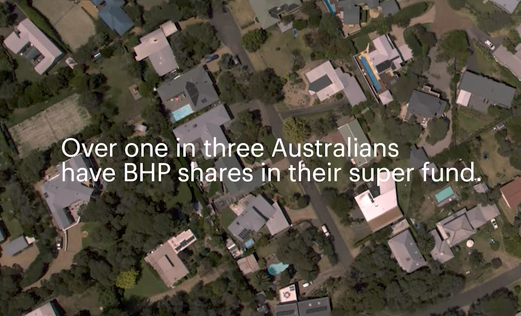Corporate brand reputation advertising will never appeal to real people
A sceptical Tim Riches delves into the spurious world of corporate reputation and asks what’s really behind those super fund share ads.
In recent weeks, we’ve heard a new communications cross-breed baying in the backyard. A labradoodle of company branding and corporate reputation attempting to persuade us that it’s okay for giant companies such as BHP and CBA to make more money than most people can even imagine.

These corporate affairs/marketing mash-ups are pressing the point that when they make the big bucks, some of those bucks find their way into regular folks’ super funds. They’d have us believe it’s the Aussie battler who benefits from exporting tax liabilities as well as the fabric of the country, or turning ATMs into laundromats while rewarding employees for shafting customers.
While it’s fascinating to see advertising being deployed for what has traditionally been acknowledged as a corporate comms problem, the question that begs to be asked is who these efforts are really directed at.


Tim, if more people were self-reliant, we wouldn’t have 5.9m ‘lost or inactive’ superannuation accounts.
Work on various super funds over the years would indicate that many people don’t start thinking about their super as ‘their money’ until they start thinking about retiring – which is why I reckon it’s a challenge to try and make a connection with them via a ‘shares in your super’ message
You’re right, Tim. ‘Shares in your super’ won’t spur young people to crank up their super. Teaching financial literacy in high schools might.
My labradoodle’s brand reputation feels besmirched right now.
I once worked on a project for an awful brand that was trying to raise perceptions for a project that everyone in the community hated.
Our strategy was effectively: Make them hate you less than other people who could be doing this shitty thing.
Tim, I think you underestimate the intelligence of Australian consumers and growing awareness of super responsibilities. In that super has only been 17 years compulsory in Aust it is still in an education phase. The responsibility of both BHP and CBA as public companies is to both customers AND shareholders. To amplifi a corporate message and reach audiences who are in fact part owners of these businesses by using commercial media publisher platforms is called a brand strategy and is reflected in what we fundamentally call advertising placements.